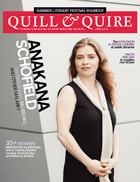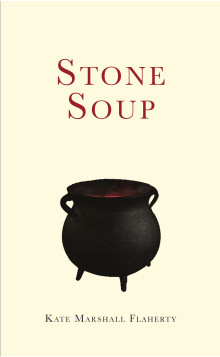Real Gone by Jim Christy
 Real Gone
Real Gone turns the myth of the Sixties on its head. The
protagonist may be a peripatetic young man on an intense search but he
knows that the gaff is in. There are sex and drugs, of course, and
politics, even a little rock and roll. There is also Rhythm and Blues,
and jail and murder; some famous people have walk-on parts but they are
no match for a wild assortment of obscure rounders, radicals and
roustabouts. Set in 1967-1968, the novella records the very moment that
an empire reached its peak and started its decline.
Like the protagonist of
Real Gone, Jim Christy grew up in
Philadelphia, led a knockabout life in the United States which included
carnivals, hoboing, and professional boxing, was involved in radical
politics and moved to Canada in 1968. As well as being a writer, he is
also a widely exhibited visual artist and has recorded CDs of poetry and
music and performed in various countries. Recent books include the
novel
The Redemption of Anna Dupree (2004) and the nonfiction book
Scalawags (Anvil Press, 2008).
Jim Christy
Following is my review:
Real Gone, Jim Christy
Quattro Books, 2010
125 pages, $16.95
isbn 978-1-926802-01-5
I've been hanging out from time to time with 'my new farm neighbour' Jim Christy. I first met Jim and his partner, artist Virginia Dixon, at the Another Dam Poetry Reading at PurdyFest two summers ago. Immediately I recognized fellow travelers in this striking couple - esp. Christy with his killer grin, two front teeth glittering golden. Someone introduced us, and though our literary paths have criss-crossed, it was the first time we'd actually met. I was a bit star-struck, and mumbled, "You're THE Jim Christy, the iconic Canadian writer?" or somesuch blather. Christy responded by giving me his latest book, reviewed here, & signed it:
To Chris, please forgive my anti-Americanism! your new friend, Jim Christy
I'm always swamped with books during PurdyFests, most gifts, some purchased.
REAL GONE drifted to the bottom of that summer's various piles, and in the procrastinating interim, I've had the pleasure of hearing a few of the anecdotes in this book in person. Christy is a master raconteur, and that's one of the things I like most about this slim volume. Christy doesn't overwrite his incredible anecdotes about being everywhere, doing everything, and meeting everyone. If he had, this book would be a thousand pages. Better to use the book as a guidebook to both the 1960s and to Christy's stories, and to sip a beer and listen - closely - to Christy personally fleshing out the details in his tall, but all true, tales.
My one complaint is I wish the publisher had provided an index. On his writerly dharma path through the 60s, Christy encountered just about every famous personality, and attended just about every key event. There are the earliest days of hippiedom in Haight-Ashbury, Jim Garrison and the Warren Commission, 'on the road' escapades to Mexico al la Kerouac, Janis Joplin, the Pentagon demonstration, the Chicago Democratic convention riots, Peter Orlovsky, Valerie Solanas, Martin Luther King's funeral - quick takes on each. I'd like to be able to thumb through an index and easily revisit events and characters. And as Christy experienced such an incredible array of characters and events, an index would make this memoir far more accessible, especially for future documentarians, historians and writers on the 1960s.
That silly 60s' cliche, "If you remember them, you weren't there!" doesn't apply to writers. Memories are a writer's stock in trade, and Christy remembers very well. Even the dialogue is fresh and immediate - I'll have to ask Christy sometime if he has a photographic (phonographic??) memory. Almost two decades ago I heard a radio interview with Eric Clapton, and Mr. Clapped-Out claimed he had no idea what he was thinking in those heady times. Christy remembers.
He remembers and captures for readers what the U.S. of A. was like during the waning era of Jim Crow in the American south. As a workingclass but progressive hitchhiker in the 1960s, Christy was rousted time after time by the cops for being in the wrong place at the wrong time. Christy remembers his youthful thoughts and political awakenings, the angst and turmoil of dealing with draft boards and the ever-present horror of the imperialist War in Vietnam.
Reading
REAL GONE I realized how many common experiences Christy and I share. We both consulted and worked with Quakers Friends Service Committees, hoping for conscientious objector status. Neither of us was successful in obtaining CO status, and while we negotiated and avoided our draft boards, we somehow lived day-to-day through those turbulent times.
My father and I also had a very similar and parallel confrontation to Christy and his father during the riots at the Chicago Democratic convention in the summer of 1968. For both of us, watching TV with our parents proved a seminal and deciding moment in our ultimate decisions to avoid the Vietnam War and to move to Canada. Whereas Christy and his dad came close to blows, my father and I came even closer. During one particularly vicious assault, probably on a young woman being beaten by the Chicago cop/thugs, I couldn't stop myself from yelling out at the TV, "You motherf...ers!" My father started to swing on me, I blocked his punch, and was about to return the favour, when he whimpered, "You'd hit your father!" "You'd hit your son!", I told the man who'd been a Squadron Leader for the Royal Air Force (RAF) during World War Two. I'd long realized my father was a rabid anti-Semite, and the contradiction of him fighting against Hitler had started to confuse me, but his reputation as some sort of brave hero dissolved that night in our screened porch on Key Biscayne. All I could think was what a coward, expecting to hit a young man appalled by police brutality. And then cowering when I had the effrontery to consider hitting him back. Since then, no one has assaulted me without risking my immediate response.
What were we thinking? What were we feeling back then, in that heady apocalyptic and decisive decade? Christy remembers and records the internal as well as the external, all too well. No revisionist historians, no jealous younger writers will be able to change our recordings of those times. We WERE there, and we DO remember.
REAL GONE is an important historical document, as well as the fascinating memoir of a major modern writer updating the experiential tradition of Jack Kerouac and George Orwell.
Chris Faiers
June 12, 2012
from my blog, Riffs & Ripples from ZenRiver Gardens:
http://riffsandripplesfromzenrivergardens.blogspot.com/
notes:
My book on the 1960s is online as
EEL PIE DHARMA (find on Google) to be republished this fall by Hidden Brook Press as
EEL PIE ISLAND DHARMA
Another interesting resource is
THE TASTE OF METAL: A DESERTER'S STORY, by Jack Todd,
2001, Harper Collins, 253 pages
~ ~ ~ ~ ~ ~ ~ ~ ~ ~ ~ ~ ~ ~ ~ ~ ~ ~ ~ ~ ~ ~ ~ ~ ~ ~ ~ ~ ~ ~ ~
responses:
thanks, Anna : )
He's a very important figure in CanLit and CanPo. When I called him an icon, he replied, "That's just 'noci' spelled backwards."
When I asked Jim how his book had been received, he said it basically fell thru the cracks. Too bad. The 1960s were a seminal & critical decade, esp. in North America, & Christy's book (and mine) are important memoirs of that period. I hope my review & your posting will stimulate further purchases & reviews of REAL GONE!
peace & poetry power!
Chris ... and Chase ... wrfffffffffffffffffff! (we're hiding from a thunderstorm, & I'm drinking chiraz red wine)
On 2012-06-12, at 4:57 PM, anna yin wrote:
Hi Chris,
http://www.jimchristyoutsiderart.com/wordwork1.html
Jim is very interesting.
I posted your review and his website to coviews.com (english garden).
Anna
~ ~ ~ ~ ~ ~ ~~ ~ ~ ~ ~ ~ ~ ~ ~ ~ ~ ~ ~ ~ ~ ~ ~ ~ ~ ~ ~ ~
BOOK REVIEW
DETAILS
Publisher: Quattro Books
Price: $16.95 paper
ISBN: 978-1-92680-201-5
Page count: 126 pp.
Size: 5 x 8
Released: May
by Jim Christy
Real Gone is a meandering novella about a
draft dodger in the 1960s who moves to Canada. Written by one-time
American Jim Christy, who relocated to Canada in 1968, the book reads
like a memoir.
The narrator, also named Jim Christy, reconstructs a year or so of
his life when he was in his early twenties, driving around America with
buddies and girlfriends, contemplating the cruelty of bigots and the
naïveté of hippies, getting arrested and drafted, deciding to flee
north, and taking part in a murder trial.
Written in Christy’s customary plainspoken prose style,
Real Gone
presents a portrait of an America polarized between revolutionaries and
racists. The narrator fashions himself as an anarchist and has no kind
words to say about the crazies on either side. If he identifies with any
group, it’s the black underclass. He has a deep knowledge of old time
rhythm and blues, studies at a black college, and is the only white guy
to attend a lecture by Muhammad Ali on the Nation of Islam. (Ali shakes
Christy’s hand and hams it up for the cheering crowd while whispering in
his ear, “
What you doin’ here, boy?”).
Increasingly, Christy has no answer to that question. He attempts to
go to Atlanta for the Reverend Martin Luther King, Jr.’s funeral,
dodging race riots along the way, but ends up in a North Carolina jail
for being out on the street after curfew.
America, he concludes, has no place for the likes of him. Before he
can leave, though, he’s called as a character witness at a good friend’s
trial for murder. The trial goes better than expected, but the accused
man is still convicted. Christy heads for Canada, and the book comes to a
sudden close.
Ultimately, this slim volume is more first act than complete story.
Canada, in this fiction, is the Promised Land, or at least not the Land
of Chaos. Canadian readers may find this storyline comforting, but the
mythology of the 1960s as the most important decade – and Canada as the
Great, Sane, Liberated Place – is more than stale. Entering Canada, Jim
Christy (protagonist) leaves behind the outrageous U.S., but this
doesn’t offer the reader narrative satisfaction.
Reviewed by Michael Bryson (from the July 2010 issue)
Latest issue: June 2012

~ ~ ~ ~ ~ ~ ~ ~ ~ ~ ~ ~ ~ ~ ~ ~ ~~ ~ ~ ~ ~ ~ ~ ~ ~ ~ ~ ~ ~ ~ ~ ~ ~ ~ ~ ~ ~










